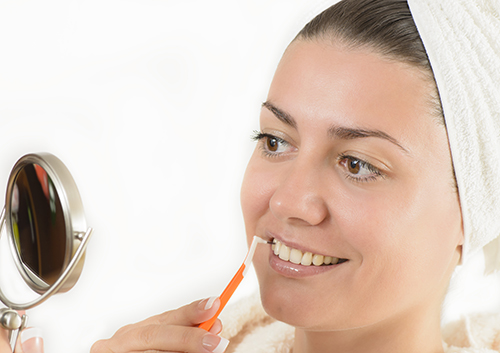Tips for Cold and Flu Season
November 6th, 2025

It’s peak cold and flu season, a time to be especially conscious about your health. We have some suggestions to help you navigate this contagious time of year, with bonus tips for a healthy smile.
- Wash Up!
Bacteria and viruses can live for hours and even days on non-porous surfaces like doorknobs, phones, and keyboards. That’s why it’s so important to wash your hands before touching your mouth, nose, and eyes, before brushing and flossing, and before you cook or eat. Washing with plain soap and water will eliminate most germs.
Bonus Tip: Keeping your fingers away from your mouth does more than prevent the transmission of bacteria and viruses. Fingernail biting can damage enamel. Prolonged thumb or finger sucking can affect tooth and jaw alignment. Delicate gum tissue can be injured or infected by broken or dirty fingernails. If you’d like to break harmful oral habits, talk to John Pappas for suggestions.
- Stay Hydrated
Hydration supports healthy skin, helps regulate blood pressure and body temperature, and is vital for digestion and other bodily functions. Proper hydration is also important for a healthy immune system and healthy mucous membranes, which will help you fight off colds and flu. Talk to your doctor about your ideal amount of daily hydration, whether from water, other fluids, or water-rich foods.
Bonus Tip: We also need to be hydrated to produce healthy levels of saliva. Saliva washes away food particles and bacteria and helps neutralize enamel-eroding acidity in the mouth.
- Eat Healthy Foods
A healthy diet is crucial for a healthy immune system, with foods such as lean proteins, fruits, vegetables, whole grains, and low-fat dairy products.
Bonus Tip: A balanced diet is good for your oral health, too! We need vitamins A and C for healthy gums and oral tissues, minerals like calcium and phosphorus to keep tooth enamel strong, and dairy products enriched with vitamin D, which enables our bodies to absorb the calcium we get in our diet.
What happens if you become ill despite your precautions?
- Reduce the Chance of Infecting Others
If you’re ill, you can help stop the spread of germs by limiting contact with other people, covering your mouth and nose when you cough or sneeze, washing your hands frequently, and cleaning the common surfaces in your house which harbor germs.
Bonus Tip: Sharing isn’t caring when it comes to colds and flu. No matter how close you are to your family members or roommates, your toothbrushes shouldn’t be close at all. Let your brush air-dry in an upright position away from other brushes to avoid contamination.
- Be Choosy about OTC Medications
If you take sugary cough or cold medications, brush or rinse afterward. Sugar-free cough drops are better for your teeth than sweet lozenges which bathe your enamel in sugar as you let them dissolve.
Bonus Tip: Don’t bite into cough drops! You risk chipping or cracking a tooth.
- Keep Up with Healthy Habits
Be sure to keep hydrated, especially if you’ve been suffering from vomiting or diarrhea. Get the sleep you need to recover. Eat a well-balanced diet.
Bonus Tip: Stay on top of your dental hygiene and brush and floss as usual, with one caution. Vomiting brings up harsh stomach acids which weaken the mineral bonds keeping tooth enamel strong, so brushing right away can be abrasive. If you throw up, rinse your mouth with water and wait 30 minutes before brushing to allow your enamel to come back to full strength.
- Stay Home When You’re Sick
You’ll get better faster with proper care, which includes getting the rest you need to recover. And you won’t be sharing germs with the people around you.
Bonus Tip: If you have an appointment scheduled with your dentist, reschedule if necessary. Your dental team at Masterpiece Dentistry at Copley will be happy to accommodate you to prevent the spread of germs and to make your dental procedure a more comfortable one.
It’s the height of cold and flu season in Boston, Massachusetts, but you’re not alone! Talk to your doctor about immunizations and other preventative measures. If you do become ill, follow your physician’s recommendations. And if you have any dental concerns, your dental team is prepared with timely advice—at any time of year.




 Website Powered by Sesame 24-7™
Website Powered by Sesame 24-7™